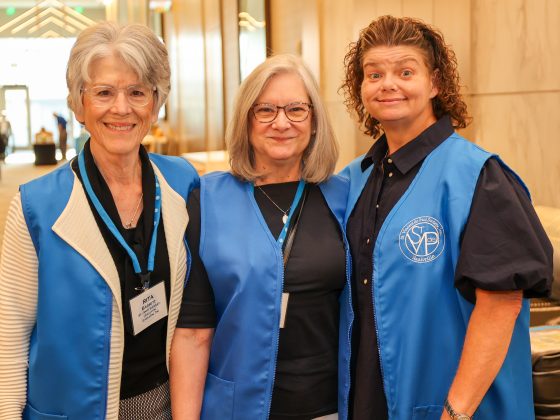The Catholic Church teaches the importance of tradition in addition to Scripture. It is through tradition that the divine revelation is passed along from the Apostles to us. Tradition and Scripture “form one sacred deposit of the word of God”. [Dei Verbum, 10] It should be no surprise then, that the Society of St. Vincent de Paul is governed by both the Rule and by the traditions of the Society. [cf Rule, Part II, 7.4]
The Rule, of course, has been revised from time to time over the past 187 years, often in order to incorporate accumulated traditions into the Rule itself. One of the changes made to Part III of the Rule in the most recent revision (in 2018), was to slightly change the wording of Statute 7 to allow Conferences a little more flexibility in conducting their meetings, specifically so that they might have meetings wholly dedicated to spiritual reflection, but not necessarily including the “business” items of the agenda every week.
After all, “the end of the Society is especially to rekindle and refresh … the spirit of Catholicism,” Bl. Frédéric wrote, explaining further that “fidelity to meetings, and union of intention and prayer are indispensable to this end”. [Letter 182, to Lallier, 1838] In other words, while our home visits are the primary means to our growth in holiness, we cannot achieve that growth without meeting together regularly in prayer and reflection.
The Manual further explains our Rule and is one of the best resources for understanding our traditions. In the case of the meeting agenda, for example, the Manual makes clear that “Every Conference meeting includes a spiritual component that promotes active participation and discussion.” [Manual, p. 18] While there is not a prescribed form for the spiritual reflection, both the Rule and Manual explain that the center of it is discussion and sharing between members.
Writing about the meetings of the first Conference, Bl. Frédéric related that they were reading and discussing The Imitation of Christ, and the Life of St. Vincent de Paul in their meetings, for example. [Letter 175, to Lallier, 1838] More recently, using tools such as the Spirituality of the Home Visit booklet, many Conferences have begun using home visit reports as the basis for their reflections. In this way, all members, not just the visitors, benefit from the visitors’ experience. In turn, by adding their own insights, they enrich everybody’s growth.
Through our spiritual reflections, we seek to explicitly connect our service, spirituality, and friendship. This is one of our most precious traditions, if we believe, as Bl. Frédéric did, “that visiting the poor should be the means and not the end of our association.” [Letter 182, to Lallier, 1838]
Contemplate
How can I better foster shared growth in holiness in my Conference?




Will pass this along